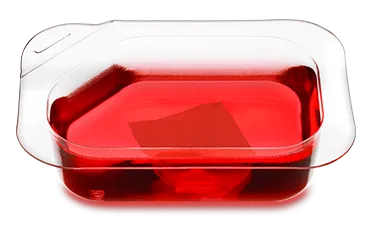
Diabetes is the leading cause of non-traumatic lower extremity amputations in the United States, and approximately 14 to 24 percent of patients with diabetes who develop a foot ulcer have an amputation. Research, however, has shown that the development of a foot ulcer is preventable.
Anyone who has diabetes can develop a foot ulcer. People who use insulin are at a higher risk of developing a foot ulcer, as are patients with diabetes-related kidney, eye, and heart disease. Being overweight and using alcohol and tobacco also play a role in the development of foot ulcers.
Ulcers form due to a combination of factors, such as lack of feeling in the foot, poor circulation, foot deformities, irritation (such as friction or pressure), and trauma, as well as duration of diabetes. Patients who have diabetes for many years can develop neuropathy, a reduced or complete lack of feeling in the feet due to nerve damage caused by elevated blood glucose levels over time. The nerve damage often can occur without pain and one may not even be aware of the problem.
Once an ulcer is noticed, seek podiatric medical care immediately. Foot ulcers in patients with diabetes should be treated for several reasons such as reducing the risk of infection and amputation, improving function and quality of life, and reducing health care costs.
What we can do to help you manage this problem
If you have an ulceration on your feet, it is very important that we see you as a patient. Timely care of this problem can mean saving your foot and leg from a possible amputation.
Initially, we will perform a complete history and physical examination of your feet to determine the exact cause of your ulceration. We often will perform a comprehensive biomechanical examination to determine what role you gait plays in the formation of the ulceration. Digital x-rays are often needed to assess the bone and joint structures adjacent to the ulceration.
Our main philosophy in the treatment of your ulcer is to obtain healing as soon as possible. We will help you prevent infection, we will take the pressure off of the ulceration by utilizing various offloading techniques, we will remove dead tissue from the ulceration with debridement and we will utilize and suggest various topical medications and dressings for your ulceration.
Many advancements have been made in the science of wound healing. We now have many options to help heal your ulceration. Various products are available such as anti-microbial collagen matrix, dehydrated placental membrane, living cellular skin substitutes, and fresh amniotic membranes. These products can help to restore the compromised wound bed to facilitate healing by providing a scaffold where the patient's own cells can migrate to close the wound.
We also can prescribe inserts and diabetic shoes to further help offload pressure from the ulceration. If the ulceration is infected, it may be necessary to place you on antibiotics and hospitalization may be necessary.
A majority of non infected foot ulcers are treated without surgery, but surgical management may be needed. Examples of surgical care to remove pressure on the affected area include shaving or excision of bone(s) and the correction of various deformities such as hammertoes, bunions, or bony spurs. The best way to treat a diabetic foot ulcer is to prevent its development in the first place. It is important that we see you as a patient if you have an ulceration. We will determine the best treatment for this serious condition. Call or text today to make an appointment!


